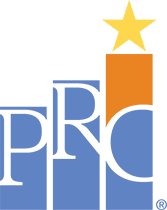Chief Medical Officers (CMOs) are a key influence for most healthcare organizations, setting the tone for physicians and determining both patient experience and quality of care. To better understand the challenges CMOs face, PRC conducted a blinded national study of physician leaders. As we identified the most significant challenges they face, it became clear that developing physician leaders is both a necessary and difficult element of the job. With 91% of respondents identifying “developing physician leaders” as a major or moderate challenge, it’s undeniable that the healthcare community must rise to support better infrastructure for physician leadership.
Largely, CMOs recognize the importance for physicians to have a strong voice in their healthcare organizations, after all, physicians are both clinical experts and the face of the organization in the eyes of the patients. Of course, in order to have the decision-making power they want, physicians must be represented on leadership teams, presenting the need for CMOs to develop physician leaders. This becomes a challenge, however, as a lack of development and leadership training, time, funding, and physicians themselves present significant obstacles to the development of organizational physician leaders.
Overcoming Obstacles
Developing physician leaders demands time and funding, two resources CMOs sorely lack. As a result, physicians are often drafted into leadership roles, rather than being carefully curated and mentored. Physicians themselves often struggle to find the time to devote to a leadership role and are frustrated by bureaucratic restraints once holding the position.
Further, many physicians are simply not interested in leadership beyond the leadership done in their practices and over care teams. They do not have organizational leadership career aspirations beyond the incredible efforts that go into being an excellent physician and are not interested in expanding their natural capacity for emotional intelligence to become a strong leader. This creates hurdles for CMOs who are charged with developing physician leadership programs, which demands both acculturation and interpersonal skill development.
“Physicians are trained to be clinical experts. This often is despite efforts towards team building, common goals, alignment with the rest of the organization,” a Chief Medical Officer in the West Region said.
A CMO in the South Region agrees, saying, “Medical training does not inherently develop leaders. Sometimes, it is even antithetical to really working with or leading a team.”
Until both medical training and hospital infrastructure are reimagined to curate strong physician leaders, CMOs will continue to bear the burden of helping physician voices find representation among senior leadership.
This blog is excerpted from PRC’s coming National CMO study, coming this spring. Complete the form below to register for an advance copy.


